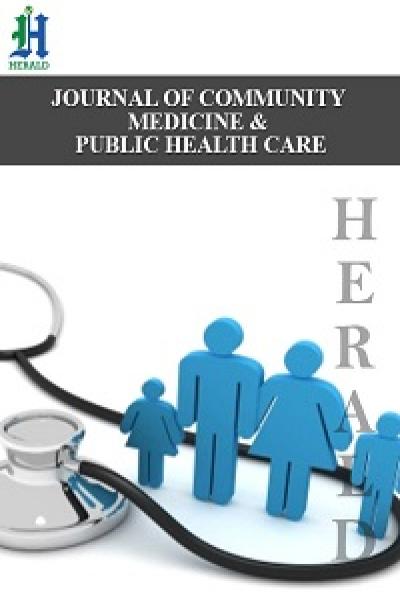
Corona Virus is Not Gender-Blind, Nor Should We Be - Covid 19 from a Gender Lens
*Corresponding Author(s):
Cosmos MugambiInstitute Of Tropical And Infectious Diseases, University Of Nairobi - 30197, Kenya
Tel:(+254-20) 491 0000,
Email:cosmgambi@gmail.com
Introduction
The year 2020, marks the 25thanniversary of the Beijing Platform for Action but with COVID-19, limited gender gains made in the past decades are at risk of being rolled back as the pandemic is deepening pre-existing gender inequalities. Many females are caught in a fast-evolving situation that has disrupted education, health, protection and livelihoods. WHO recognizes the need to include women in outbreaks preparedness and response such as the global COVID-19 policy spaces but other than the disaggregation of the disease burden by gender, response measures have not addressed the gendered impacts. Gendered implications of quarantine, such as physical, cultural, security, and sanitary needs are largely overlooked and women have not been fully incorporated into surveillance, detection, and prevention mechanisms hence a missing gender lens in response.
Closure of schools has a differential effect on women, who absorb the additional work of caring for children, with the consequence of limiting their livelihoods opportunities. During the west African outbreak of Ebola virus disease, women’s voices were ignored thus resources for reproductive and sexual health were diverted to the emergency response, contributing to a rise in maternal mortality. During the Zika virus outbreak, women did not have autonomy over their sexual and reproductive lives, which were compounded by their inadequate access to health services. In most countries access to vital sexual and reproductive health services are in jeopardy. In the health and social sectors, women constitute 70% of workers, the absence of adequate social protection systems further exacerbates their vulnerability. Where healthcare systems are stretched by outbreaks, care responsibilities are “downloaded” onto females to care for ill family members. Female healthcare workers have called attention to their specific needs beyond personal protective equipment, including menstrual hygiene needs and psychosocial support-in China, female healthcare workers’ menstrual needs were overlooked, including insufficient access to sanitary products during prolonged working hours.
The current crisis has led to higher rates of domestic violence as harmful gender norms of men being considered the breadwinner has left them disenfranchised when they are out of work hence increased risk of gender-based violence (GBV) and Intimate Partner Violence (IPV) despite stretched capacity of response services. Water, Sanitation, And Hygiene (WASH) services—such as water, hygiene supplies and solid waste management are also likely to be affected. Females may find that their access to hygiene and sanitary materials reduced due to decreased household income or increased household competition for scarce resources.
From the West Africa EVD outbreak, movement restrictions and quarantine measures resulted in less trade of and accessibility to food, sending prices higher hence food insecurity or malnutrition putting more pressure on females. Social and gender norms will play a role in educational investment decisions-intra-household allocation of resources for home schooling might be redirected to boys over girls due to girls’ increased burden of care in the households.
Given that COVID-19 is not gender-blind, the response to it should not be either. Gendered measures should include: disaggregation of the COVID-19 data by sex, age, and disability; country strategic plans for preparedness and response must be grounded in strong gender analysis; strengthening leadership and meaningful participation of women in addressing COVID-19 including budgeting; first responders must be trained on handling GBV cases associated with or exacerbated by the epidemic including referral pathways; priority support to women on the frontlines by ensuring access to adapted protective equipment, hygiene products and arrangements for those with care responsibilities; making minimum emergency packages of sexual and reproductive health services available for women and adolescents; including menstrual hygiene products in hygiene kits issued to quarantined population groups; adapting adolescent girls’ programs to a virtual format to reach girls in the context of confinement due to COVID-19; paying attention to respiratory illnesses in pregnant women due to increased risk of adverse outcomes; providing psychological support to pregnant women who are infected; issuing clinical guidelines for treating pregnant women with COVID-19 infection; addressing the growing mental health and psychosocial needs of females; providing financial incentives for families and girls to resume their education when the confinement ends; considering differentiated social messaging and responses to provide for the lack of physical schooling; providing safety nets to women who are vulnerable during the crisis including targeted cash transfer programs; devoting more resources toward the gendered implications of the pandemic; and developing targeted economic empowerment strategies for most at risk females.
Dr. Cosmas Mugambi is a Public Health Specialist Based in Nairobi
Citation: Mugambi CG (2020) Corona Virus is Not Gender-Blind, Nor Should We be - Covid 19 from a Gender Lens. J Community Med Public Health Care 7: 069.
Copyright: © 2020 Cosmos Mugambi, et al. This is an open-access article distributed under the terms of the Creative Commons Attribution License, which permits unrestricted use, distribution, and reproduction in any medium, provided the original author and source are credited.

